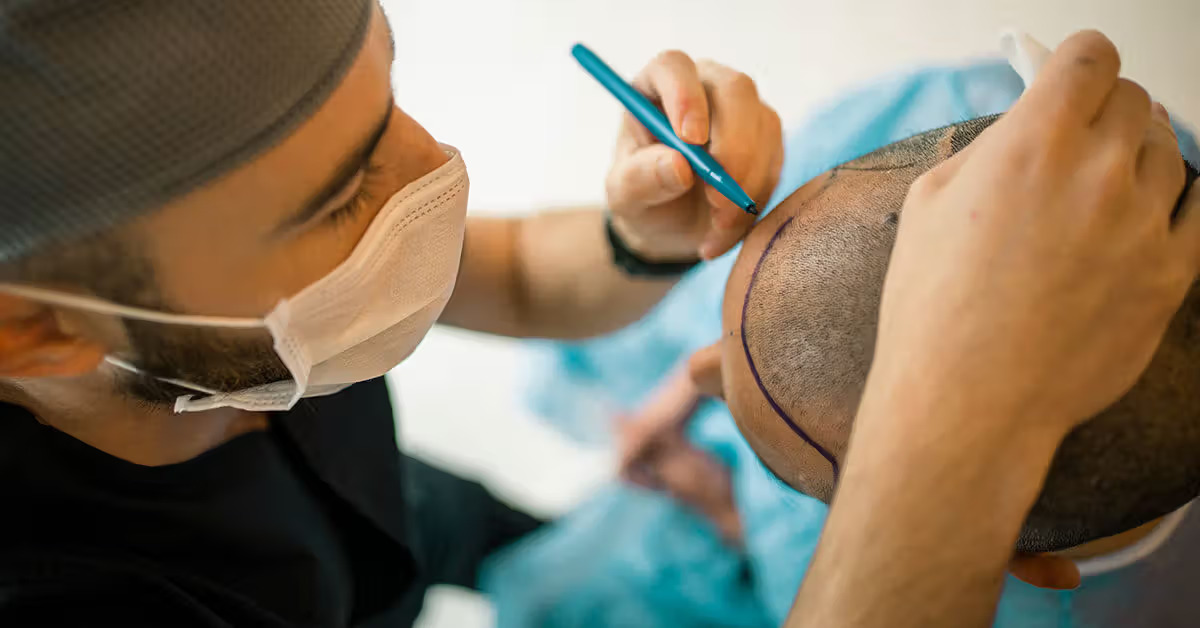Hair transplant surgery is generally considered safe and effective for most individuals seeking to restore hair growth. However, like any surgical procedure, it does come with potential risks and complications that patients should be aware of.
Here are some of the main risks associated with hair transplant surgery:
- Bleeding and Infection: As with any surgical procedure, there is a risk of bleeding during and after the surgery. Infections can also occur, although they are relatively uncommon with proper post-operative care and hygiene.
- Scarring: While modern techniques like FUE (Follicular Unit Extraction) minimize visible scarring, all forms of hair transplant surgery involve some level of scarring. In FUE, tiny scars may be scattered across the donor area, whereas FUT (Follicular Unit Transplantation) leaves a linear scar at the donor site.
- Poor Growth of Transplanted Hair: Sometimes, the transplanted hair follicles may not grow as expected. This could be due to various factors such as poor surgical technique, inadequate blood supply to the transplanted follicles, or improper post-operative care.
- Shock Loss: Some patients experience a temporary shedding of the transplanted hair, known as shock loss. This usually occurs within the first few weeks after surgery but the hair typically regrows within a few months.
- Numbness or Lack of Sensation: Temporary numbness or lack of sensation around the donor or recipient areas is common after hair transplant surgery. This usually resolves on its own over time, but in rare cases, it can be permanent.
- Unnatural-looking Results: If the hairline is designed poorly or if the density of transplanted hair is not properly managed, the results may look unnatural. This risk can be minimized by choosing a skilled and experienced surgeon.
- Cysts: In some cases, small cysts may form in the recipient area. These are typically benign and can be treated by a dermatologist or the transplant surgeon.
- Long Recovery Period: Hair transplant surgery requires a recovery period during which the scalp needs to heal. Some discomfort, itching, or swelling of the scalp is common during this time.
- Allergic Reaction: While rare, some individuals may have an allergic reaction to medications used during the procedure or to topical solutions applied to the scalp post-surgery.
- Long-term Maintenance: Hair transplant surgery provides permanent results, but the natural hair surrounding the transplanted area may continue to thin over time. Therefore, patients may require additional procedures or medical treatments to maintain a satisfactory appearance.
It’s important for individuals considering hair transplant surgery to discuss these risks and complications with a qualified surgeon during the consultation phase. Choosing a board-certified surgeon with experience in hair restoration procedures can significantly reduce the likelihood of complications and improve the chances of achieving natural-looking results.





Comments